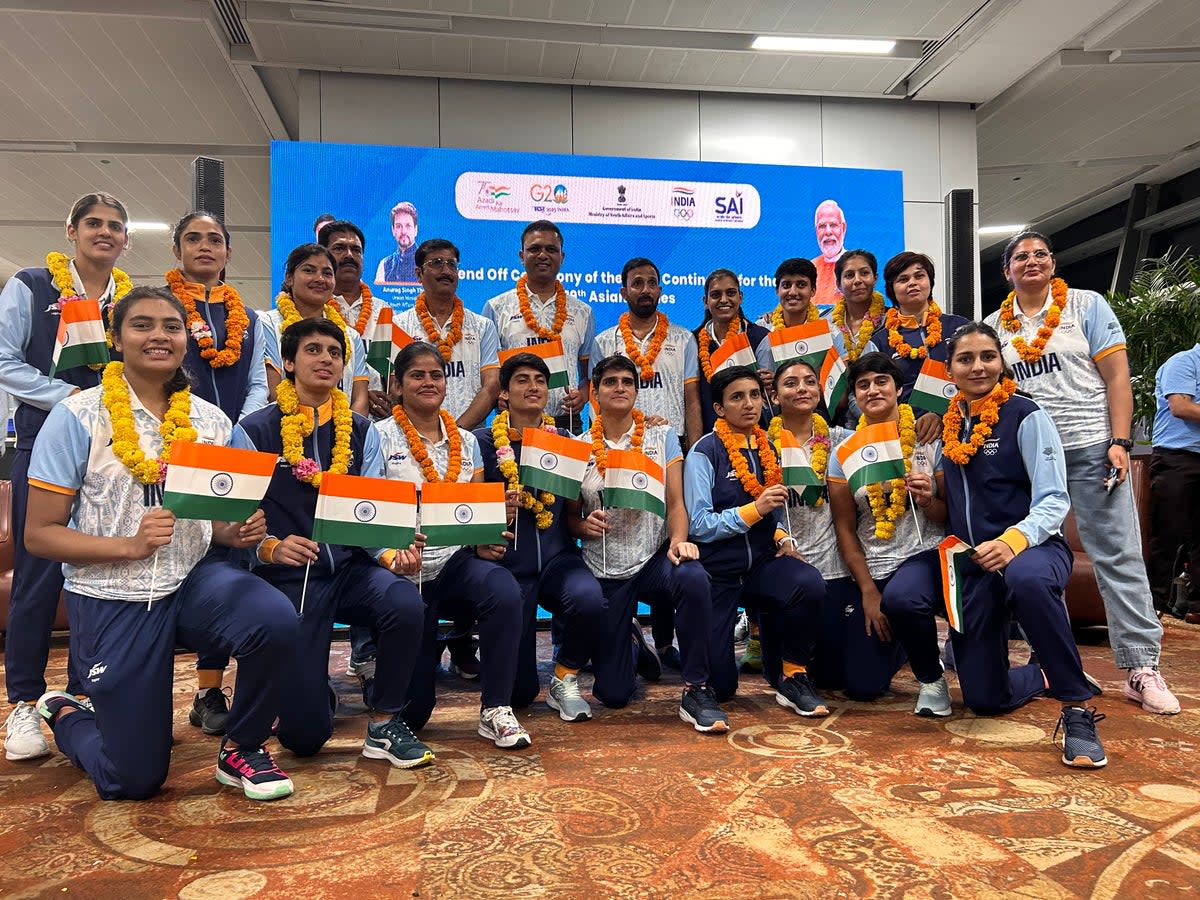India lodges protest with China over players from Arunachal Pradesh being ‘denied entry’ for Asian Games

India has hit out at China and cancelled the sports minister’s scheduled visit to the Asian Games after some of the athletes from Arunachal Pradesh were denied accreditation and entry to the sporting event.
The Indian foreign ministry on Friday said that a strong protest has been lodged in New Delhi and Beijing against “deliberate and selective obstruction of some of our sportspersons” from the Asian Games.
It said that Chinese authorities have denied entry in a targeted and “premeditated manner” to athletes from India’s eastern state of Arunachal Pradesh – a region along the disputed border on which Beijing stakes its claim.
“China’s action violates both the spirit of the Asian Games and the rules governing their conduct, which explicitly prohibits discrimination against competitors from member states,” Arindam Bagchi, a spokesperson for the foreign minister, said.
The Chinese foreign ministry reiterated its claims on the territory while responding to a question on Indian athletes during a press briefing.
It is the second time this year that three players from Arunachal Pradesh were unable to visit China over wider territorial disputes between India and China. In July, India pulled out from the World University Games to protest China’s decision to issue stapled visas to Wushu athletes from Arunachal Pradesh.
China claims that it considers the whole of Arunachal Pradesh as its territory and calls it “South Tibet”. India has firmly rejected China’s claims, calling the region an unalienable part of India.
Delayed a year by Covid pandemic, China is set to open the Asian Games or Asiad on Saturday in the eastern city of Hangzhou. It will be China’s biggest sporting event in over a decade, with more than 12,000 athletes from 45 nations competing in 40 sports.
The three athletes, competing as wushu fighters from the state of Arunachal Pradesh, were issued stapled visas instead of stamped ones, the foreign ministry said.
India does not accept stapled visas, seen as China’s apparent attempt to indicate that it does not recognise India’s sovereignty over Arunachal Pradesh.
“The Chinese government has never recognised the so-called Arunachal Pradesh, and the South Tibet region is part of China’s territory,” a Chinese foreign ministry spokesperson told reporters on Friday.
Indian sports minister Anurag Thakur was scheduled to visit Hangzhou for the games to support the Indian contingent of athletes taking part in the events.
But the foreign ministry said his visit has been cancelled as “a mark of our protest against the Chinese action”.
Indian minister of earth sciences Kiren Rijiju, who is a politician from Arunachal Pradesh and former sports minister, said he “strongly condemns” China’s actions.
“Arunachal Pradesh is not a disputed territory but an inalienable part of India. This step of China will not change the status of the state..,” he said.
“The steps taken by China are unethical and illegal... The International Olympic Committee should reign in China’s illegitimate action.
Wei Jizhong, chair the Olympic Council of Asia’s (OCA) Evaluation Committee for the 2030 Asian Games, said China did not refuse visas to Indian athletes, but did not issue clarification on India’s complaint over accreditation.
“Indian athletes have been granted the visa to enter China,” he said. “These Indian athletes have got already the visa to enter China. China didn’t refuse any visa. Unfortunately, these athletes didn’t accept this visa.”
The latest diplomatic row between the two nuclear-powered neighbours comes as ties between China and India have deteriorated over a bitter border dispute in the Himalayan region where armies have come face to face on many points since 2020.
The region of Arunachal Pradesh was part of China’s multiple efforts to rename places in the region bordering China, a move rejected by India.
